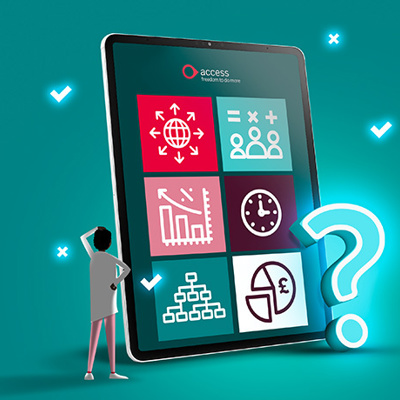Digital skills for finance transformation | ACCA Clive Web | Podcast
The importance of digital skills for finance teams to drive transformation: Key points covered in this podcast:
- The COVID-19 pandemic has caused a shift in how many implementations organisations are undertaking to drive transformation and the speed in which they are being undertaken.
- Transformation is a cultural shift and a continuous process underpinned by digital technology.
- Finance and accounting professionals need to hone their digital skills to play a pivotal role in this transformation – to support key practices, capabilities and strategies designed to increase agility and efficiency across the business.

Podcast transcription
Transformation is inevitable and finance professionals need to play a vital role in making it a success
Welcome to this podcast on enhancing digital skills. My name is Clive Webb and I'm a senior insights manager at ACCA in the Professional Insights Team. We're going to look at how the digital skills are very relevant for those accountants and finance professionals working in transformation.
Transformation has been something that has impacted many organisations
through the pandemic and in fact, before. We've seen quite a shift in the amount of implementations that organisations are undertaking and the speed through which they're undertaking them.
The phrase of ‘five years in five months’ has resonated around the pandemic space. But actually, this is about ensuring that we, as accounting and finance professionals, can claim our own and very valuable role in transformation activities and organisations.
So what I want to do is to hone in on why we need digital skills, digital skills or an assessor team for finance professionals. For a number of reasons.
Finance professionals need to understand the data to be forward-looking
Firstly, data and technology really underpin organisational success. If the pandemic has taught us one thing, it's increasingly that organisations need to be customer centric and need to respond to the nature and changes of their customer activities.
In doing so, as finance and accounting professionals, we need to be able to understand the data collected across the organisation and use technology to be able to analyse and interpret that - to give us the ability to tell the story, to generate insights, to demonstrate the potential trends. Because as accounting and finance professionals, we need to become more forward-looking in how we approach this rather than just reporting on the story of the past.
It also highlighted that performance is a broader objective than purely financial. Organisations are increasingly becoming focused not only on customer-centricity, but also on things like the broader ESG agenda, were striving towards net zero in 2030 is becoming an important imperative to how can we measure organisational success.
Finance professionals should be Guardians, if you like, of the sense of performance and its pressures - thinking broader than a purely financial objective. Being relevant and understanding how data and technology helps achieve that, and having the skills to undertake that, are essential.
The importance of improving digital skills in finance teams
This continuous learning means we need to be prepared to upskill. But these digital skills aren't just about being able to use one particular technology, for example, excel. It is about using a range of technologies, visualisation tools, interrogation tools, understanding how the organisation itself uses technology to deliver its business model.
The organisation has the capability to be able to sustain that. And by its capabilities, we mean the tools and techniques that enable it to generate revenue and support that business model. It also needs a robust set of practices and governance procedures that enable organisations to deliver and create value.
And it's those practices, such as project and programme management (agile scrums) that really needs to be part of the vernacular of the accounting and finance professionals. This is because as the business model continues to change, as organisations continue to evolve, we need to be at the heart of the strategy, the organization. And we can only do that if we understand how transformation occurs and how technologies actually support this.
The four key components in this digital skill set are:
- Emerging technologies and existing technologies
- Capabilities
- Practises
- Strategies.
Understanding transformation as a continuous process
It’s also important to highlight that transformation itself is really a cultural mindset shift. It's about organisations becoming agile, becoming flexible, being willing to adapt and change.
COVID-19 has created a burning platform to enable us to speed up and demonstrate the urgency of change. It's important that we understand how we think about how our organisation is changing and how it adapts to its sense of purpose and delivers that.
And it's important that we reflect the nature of the organisation through its diverse and inclusive workforce, as well as representing its customer base.
Furthermore, transformation is a continuous process. It doesn't end as organisations need to continue to evolve. Business models need to become more service-focused – shifting from just simply providing a good service to being predictive.
In the ongoing maintenance, customer journeys are ever more important as we celebrate the need to change. Transformation is about a journey; it’s about a cultural journey. It embraces people and process, and technology and data. And it is not necessarily just about digitalization or a digital journey. Digital is an enabler.
Transformation is about moving the organisation forward.
And it is about the holistic sense in the organization. Therefore the finance community needs to make sure that it has the right skills, in the right ways, and the right career paths to enable it to play its full role in helping the organisation achieve its purpose.
The Access Group is a market leader of powerful, feature-rich cloud accounting software. Book a free demo to see it in action, or download a brochure to find out more.

 AU & NZ
AU & NZ
 SG
SG
 MY
MY
 US
US
 IE
IE